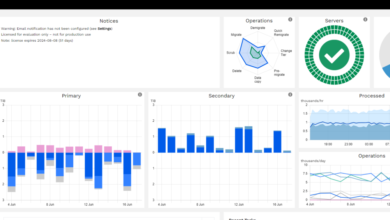Quantity Surveying Careers

Quantity surveying is an exciting career that combines both technical skills and financial management. With the construction industry continuously evolving, quantity surveyors are increasingly in demand.
What is Quantity Surveying?
Quantity surveying primarily revolves around cost management in construction projects. Quantity surveyors, often known as cost consultants, are responsible for ensuring that construction projects are completed within the approved budget. This involves estimating costs, managing contracts, and overseeing financial aspects of construction projects from inception to completion.
Beyond mere cost estimation, quantity surveyors also evaluate the financial viability of a project, negotiate with contractors, and ensure that all expenditures are properly accounted for. Their role extends into areas such as risk management, project management, and procurement. It’s a career that requires both technical expertise and strong analytical skills.
Educational Pathways to a Career in Quantity Surveying
To embark on a career in quantity surveying, certain educational qualifications are essential. Most professionals in this field possess a degree in quantity surveying or a related discipline such as construction management, civil engineering, or architecture. These programs typically cover essential topics such as construction technology, contract law, economics, and project management.
In addition to formal education, obtaining professional certifications is highly recommended. Professional bodies such as the Royal Institution of Chartered Surveyors (RICS) and the Chartered Institute of Building (CIOB) offer accreditation and certification programs. These certifications not only enhance your credibility but also open doors to better job opportunities.
For those who may not have a degree in quantity surveying, there are alternative routes into the profession. Many professionals start with a diploma or advanced diploma in construction or a related field and then progress through work experience and additional certifications.
Skills Required for Quantity Surveying
Quantity surveying is a profession that demands a wide range of skills. Apart from technical knowledge, strong communication and negotiation skills are essential. A quantity surveyor must be able to communicate effectively with clients, contractors, and other stakeholders to ensure that all parties are on the same page regarding project costs and timelines.
Analytical skills are also crucial. Quantity surveyors need to be able to assess complex data, evaluate potential risks, and make informed decisions. Attention to detail is vital, as any oversight can lead to significant financial discrepancies in a project.
Moreover, proficiency in using specialized software such as AutoCAD, CostX, and other project management tools is often required. These tools help in preparing accurate cost estimates, managing budgets, and ensuring that projects stay on track financially.
Career Prospects in Quantity Surveying
The career prospects in quantity surveying are promising. The construction industry is a key driver of economic growth in many countries, and with the global demand for infrastructure development, quantity surveyors are in high demand. Whether it’s residential, commercial, or infrastructure projects, the need for cost management professionals is ever-present.
Entry-level positions in quantity surveying typically offer competitive salaries. As professionals gain experience and obtain additional certifications, their earning potential increases. Many quantity surveyors go on to become senior consultants, project managers, or even directors of construction firms.
In addition to traditional construction projects, quantity surveyors are increasingly finding opportunities in sectors such as renewable energy, oil and gas, and telecommunications. These industries require cost management expertise to ensure that projects are completed efficiently and within budget.
Why Choose a Career in Quantity Surveying?
Choosing a career in quantity surveying offers numerous advantages. First and foremost, it provides job stability. The construction industry is a vital part of the economy, and quantity surveyors play a critical role in ensuring the financial success of projects.
Secondly, quantity surveying is a versatile career. With the skills and knowledge gained in this field, professionals can work in various sectors, from construction to consulting and even finance. This versatility ensures that quantity surveyors have diverse career options.
Moreover, quantity surveying is a career that offers continuous learning and growth opportunities. The construction industry is constantly evolving, with new technologies, materials, and methods being introduced regularly. As a quantity surveyor, you will be at the forefront of these developments, continually expanding your expertise and staying relevant in the industry.
Finally, quantity surveying offers the satisfaction of seeing a project come to life. Being involved in a construction project from its early planning stages to its completion gives quantity surveyors a sense of accomplishment. The ability to contribute to the successful delivery of a project that will be used and appreciated by others is immensely rewarding.
Challenges in Quantity Surveying
Like any profession, quantity surveying comes with its challenges. One of the most significant challenges is managing the expectations of clients and stakeholders. Clients often have high expectations regarding project costs and timelines, and it’s the quantity surveyor’s job to ensure that these expectations are realistic. This requires effective communication and negotiation skills, as well as the ability to manage conflicts that may arise.
Another challenge is keeping up with the constantly changing regulations and standards in the construction industry. Quantity surveyors must stay informed about the latest developments in building codes, safety regulations, and environmental standards. This requires continuous professional development and a commitment to staying updated on industry trends.
Additionally, the nature of the job often involves tight deadlines and high-pressure situations. Quantity surveyors must be able to work efficiently under pressure and manage their time effectively to ensure that projects are completed on schedule.
How to Advance in a Quantity Surveying Career
Advancement in a quantity surveying career requires a combination of experience, education, and professional development. Obtaining additional certifications from reputable professional bodies such as RICS and CIOB is one way to enhance your credentials and increase your chances of career progression.
Gaining experience in different sectors of the construction industry can also be beneficial. Exposure to various types of projects, such as residential, commercial, and infrastructure, will broaden your skill set and make you a more versatile professional.
Networking is another important aspect of career advancement. Building relationships with other professionals in the industry can open up new opportunities for collaboration and career growth. Attending industry events, joining professional organizations, and staying active on professional networking platforms are all effective ways to expand your network.
Conclusion
Quantity surveying is a dynamic and rewarding career that offers a unique blend of technical expertise and financial management skills. With the construction industry continuously evolving and expanding, the demand for quantity surveyors remains strong. Whether you’re just starting your career or looking to advance, quantity surveying offers numerous opportunities for growth, learning, and professional development.
If you’re someone who enjoys problem-solving, working with numbers, and being involved in the construction process, then a career in quantity surveying might be the perfect fit for you. By staying committed to continuous learning and professional development, you can build a successful and fulfilling career in this exciting field.





